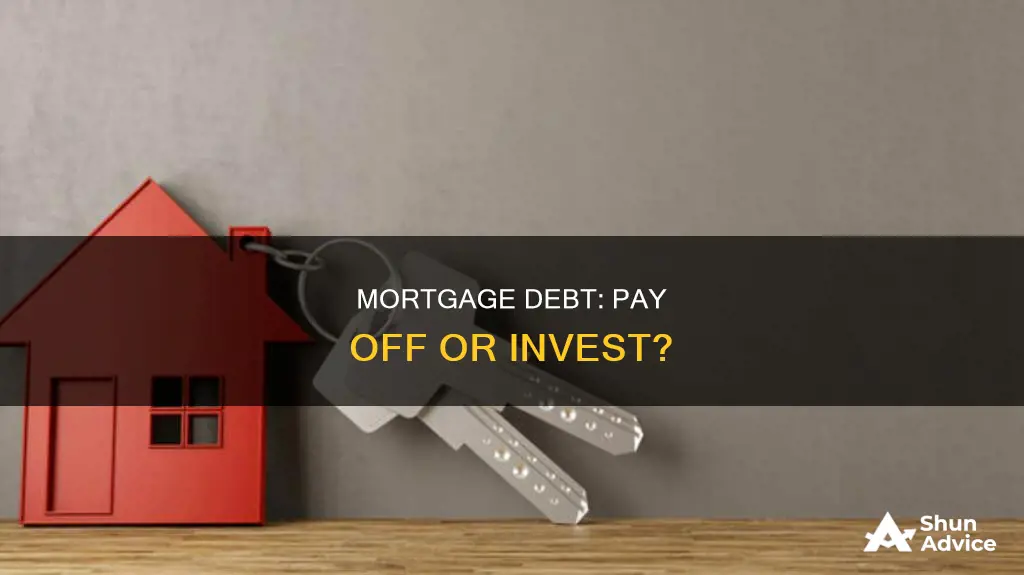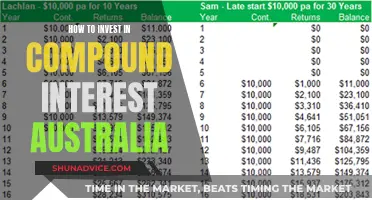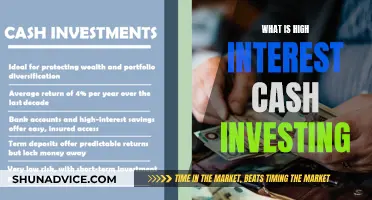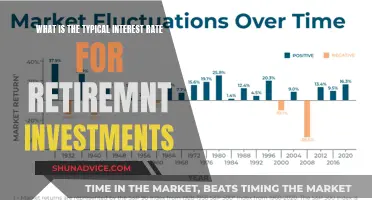
The decision to pay off your mortgage or invest depends on your financial situation, risk tolerance, and how close you are to retirement. A mortgage is considered good debt, with relatively low risk and a lower interest rate. However, if you're debt-averse, it might make more sense to pay it off early. Alternatively, you could invest your money in the stock market or low-risk options such as U.S. Treasury bonds, which may offer greater financial benefits due to compound interest.
| Characteristics | Values |
|---|---|
| Finances | Paying off a mortgage early may be a better option for those who are debt-averse |
| Risk tolerance | Investing in the stock market is riskier than paying off a mortgage early, but it can also generate higher returns |
| Interest rates | If the interest rate on a mortgage is high, it may be worth paying it off early or refinancing |
| Peace of mind | Owning a home outright can provide a sense of security and freedom |
| Tax deductibility | The tax deductibility of mortgage interest should be considered when deciding whether to pay off a mortgage early or invest |
| Investment options | Low-risk investment options include U.S. Treasury bonds, while equities or stock investments have a higher risk of price fluctuations |
What You'll Learn

The benefits of investing in the stock market
Whether you should pay off your mortgage or invest depends on your financial situation, your risk tolerance, and how close you are to retirement. A mortgage is considered "good" debt, with relatively low risk and a lower interest rate. However, if you're debt-averse, it might make more sense to pay it off early.
Investing in the stock market can offer higher financial returns than paying off your mortgage early due to the potential for compounding interest. Compound interest occurs when the interest you earn generates additional interest. For example, if you invest $1,000 and it earns $50 in interest, the next round calculates at $1,050. This can lead to greater overall returns compared to the interest cost saved by paying off your mortgage early.
The stock market offers a range of investment options to suit different risk tolerances. While equities or stock investments are considered higher-risk due to price fluctuations, there are also low-risk investment options available, such as US Treasury bonds, which are guaranteed by the US government if held until their maturity.
Investing in the stock market provides the opportunity to build wealth over time. By investing early and consistently, you can benefit from the power of compound interest and potentially grow your wealth faster than through other investment options.
Additionally, investing in the stock market can provide diversification to your investment portfolio. By spreading your investments across different asset classes and industries, you can potentially reduce risk and increase your chances of long-term gains.
It's important to carefully consider your financial goals, risk tolerance, and time horizon before deciding whether to pay off your mortgage or invest. Consulting with a financial advisor can help you make an informed decision that aligns with your specific circumstances.
Invest Wisely: Strategies for the Uninterested
You may want to see also

The risks of investing in the stock market
Whether you should pay off your mortgage or invest depends on your financial situation, the loan's interest rate, and how close you are to retirement. While a mortgage is considered "good" debt, with relatively low risk and a lower interest rate, some people are debt-averse and would prefer to pay it off early.
If you are considering investing in the stock market, it is important to be aware of the risks involved. Firstly, the stock market is inherently riskier than other investment options, such as US Treasury bonds, which are guaranteed by the US government. Equities or stock investments have a higher risk of price fluctuations, known as volatility, which can lead to losses.
Another risk to consider is the potential for compound interest. While compound interest can work in your favour if your investments are performing well, it can also work against you if your investments are losing value. Compound interest occurs when the interest you earn generates additional interest. For example, if you invest $1,000 and it earns $50 in interest, the next round calculates at $1,050. This can lead to significant gains, but it can also result in significant losses if the market turns against you.
Additionally, investing in the stock market requires a long-term commitment. If you need to access your money quickly, you may be forced to sell your investments at a loss. It is important to consider your liquidity needs and ensure that you have enough cash on hand to cover any unexpected expenses.
Finally, it is important to remember that past performance is not indicative of future results. Just because a particular stock or investment has performed well in the past does not guarantee that it will continue to do so. The stock market can be volatile, and there is always the risk of losing money. Therefore, it is crucial to carefully consider your risk tolerance and financial goals before investing in the stock market.
How to Spark Interest in Investing
You may want to see also

The benefits of paying off your mortgage early
Paying off your mortgage early also saves you the interest you would have paid over the full term of the mortgage. It also frees up money that would have otherwise gone towards monthly repayments, which could be invested elsewhere.
If you are debt-averse, paying off your mortgage early may be a more attractive option than investing. While a mortgage is considered 'good' debt, with relatively low risk and a lower interest rate, it is still a liability that some individuals would rather do without.
Additionally, consider the tax deductibility of mortgage interest and low loan rates. Depending on your financial situation, the interest rate on your loan, and how close you are to retirement, paying off your mortgage early could be a good choice.
Interest Rates: Impacting Foreign Direct Investment Decisions
You may want to see also

The risks of paying off your mortgage early
Paying off your mortgage early can be a liberating feeling, but it may not always be the best financial decision. If you have a low-interest mortgage, investing your money instead may generate higher returns than the interest cost of your loan.
For example, if you invest $1,000 and it earns $50 in interest, the next round will calculate at $1,050. This is called compound interest, and it can lead to greater financial benefits than paying off your mortgage early.
However, investing in the stock market or comparable options is inherently riskier than paying off your mortgage. Markets come with the risk of losses due to price fluctuations, called volatility.
Before deciding to pay off your mortgage early, it is important to consider your financial situation, the loan's interest rate, and how close you are to retirement. You may also want to prioritise saving for emergencies and retirement, then use any extra funds to make additional payments on your mortgage or invest in stocks.
Investment Interest Expense: What Can Be Deducted?
You may want to see also

The tax deductibility of mortgage interest
On the other hand, investing in the stock market or other financial instruments can also provide tax advantages, depending on the specific investment and the country's tax laws. For example, capital gains from the sale of stocks or other investments may be taxed at a lower rate than your income tax rate. Additionally, some investments, such as retirement accounts, offer tax-deferred growth, allowing you to postpone paying taxes on your investment earnings until you withdraw the funds.
It's important to note that tax laws can be complex and vary from country to country. Therefore, it is always recommended to consult with a tax professional or financial advisor to understand the specific tax implications of paying off your mortgage or investing your money. They can help you navigate the tax deductibility of mortgage interest and provide guidance on how to maximize your tax benefits based on your unique financial situation.
Ultimately, the decision to pay off your mortgage or invest depends on a combination of factors, including your financial situation, risk tolerance, and tax considerations. By carefully weighing the pros and cons of each option and seeking professional advice, you can make an informed decision that aligns with your financial goals and maximizes the tax benefits available to you.
Understanding Schedule E: Investment Interest Expense Limitations
You may want to see also
Frequently asked questions
This depends on your finances and risk tolerance. A mortgage is considered 'good' debt, with relatively low risk and a lower interest rate. If you're debt-averse, it might make more sense to pay it off early. However, investing in the stock market or something comparable allows you to earn more money than you'd save by paying off your mortgage early due to the compounding interest.
Repaying your mortgage saves you the interest you would have paid and frees up money that would have gone to monthly repayments. This money could be invested with the same rate of return.
Investing in the stock market or something comparable allows you to earn more money than you'd save by paying off your mortgage early due to the compounding interest. For example, if you invest $1,000 and it earns $50 in interest, the next round calculates at $1,050.
Each type of investment comes with its own risk. Equities or stock investments have a higher risk of price fluctuations, called volatility, which can lead to losses.







